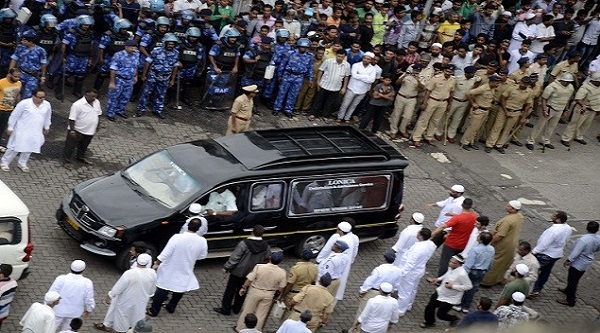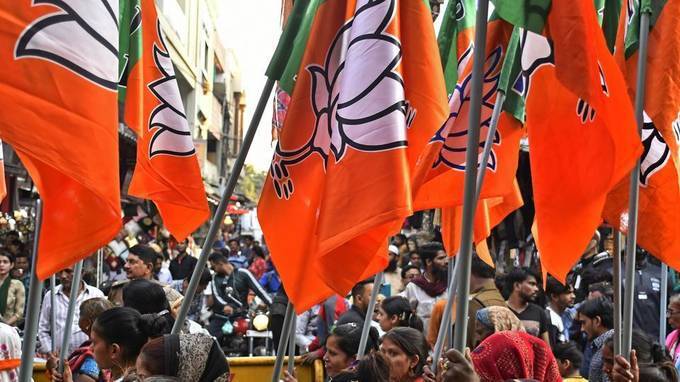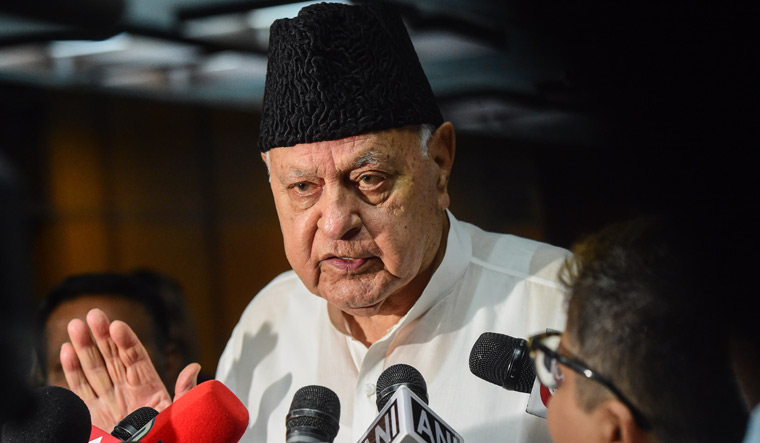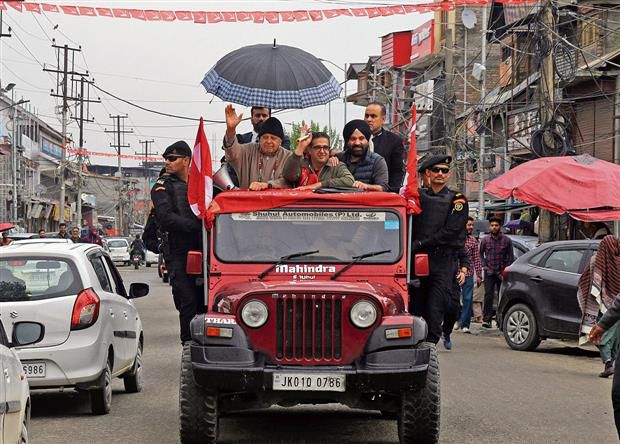Tens of thousands turned up to take part in the last journey of Yakub Memon, the Mumbai chartered accountant who was hanged in the early hours of Thursday for his alleged involvement in the 1993 Bombay blasts.
However, the ubiquitous Indian media totally blacked out the unprecedented funeral after the authorities imposed a ban on the telecast of the last rites of the condemned man at the Bada Khabrastan in the financial capital of the country.
Not willing to take any chances, police here on Thursday issued a gag order to the media barring it from photographing and videographing the funeral procession and the last rites of hanged convict Yakub Memon, reported IANS.
The 13-hour gag order was issued by Deputy Commissioner of Police (Operations) Sanjay Barkund from 11 a.m. till midnight of Thursday.
Following this, all TV channels voluntarily dissuaded from telecasting the funeral procession and the last rites.
Certain TV channels even flashed a notice, saying they would not telecast the funeral as Memon was a traitor and they would not make him a “hero” by publicizing his last rites.
The police order restraining the media said reports were received of “every likelihood of breach of peace and disturbance of public tranquility and also there is a grave danger to human life, health and safety and injury to public property on that account”.
Yakub Abdul Razak Memon, 53, was executed inside a prison in western India where he had been incarcerated since 1994.
His lawyers mounted a last-ditch effort to save him, including arguments at the Supreme Court just two hours before the sentence was carried out.
Prominent citizens, including retired Supreme Court judges, had urged President Pranab Mukerjee to commute Memon’s sentence to life in prison. That appeal reflected both opposition to the death penalty as well as fresh claims by his lawyers that he freely surrendered to Indian authorities in Kathmandu, Nepal, and that his direct links to the bombings had not been sufficiently established.
Indian investigators, along with the main public prosecutor in the case, Ujjwal Nikam, say he was arrested in New Delhi.
“I have exhausted my remedies,” lawyer Anand Grover told reporters after the Supreme Court heard Memon’s final plea. “I only hope that Yakub Memon will have a dignified death.”
Attorney General Mukul Rohtagi said: “There’s no question of victory. I’ve just done my job.”
Memon was convicted in 2007 of helping raise funds for the blasts that struck the Bombay Stock Exchange, Air India offices, a state transport office, three hotels, a gas station and a movie theatre over two hours on March 12, 1993. The attacks were seen as revenge for the demolition of a medieval mosque in northern India by Hindu nationalists.
The demolition sparked religious riots in many parts of the country, leaving more than 800 people dead, most of them Muslims.
Yakub’s older brother Ibrahim — also known as “Tiger” Memon — and Dawood Ibrahim, both leading gangsters in Mumbai in the 1990s, are the main suspects in the bombings and have fled the country. A total of 100 people have been convicted. Ten of them had also received the death penalty but it was commuted to life in prison.
One of India’s lengthiest trials, which included 686 witness testimonies that filled 13,000 pages, opened on June 6, 1995, and ended in January 2003. The judgments began in late 2006.
As Mumbai woke up to the news of the hanging, scores of police gathered near the Memon family home and cordoned off the area. Police were also stationed at the various places in the city where the bombs had exploded.
Human rights groups, including Amnesty International, have decried the hanging.
India’s legal system allows for executions in what the Supreme Court calls “the rarest of the rare cases.” But there are debates on how to define that and the only executions in recent years have been of convicted terrorists.
The vast majority of the 100-150 death sentences handed down each year are eventually commuted to life in prison.
For nearly a decade, India had an unofficial moratorium on executions. It ended in November 2012, with the execution of Mohammed Ajmal Kasab, the lone surviving gunman in the 2008 Mumbai terror attacks. Two months later, Mohammad Afzal Guru, a Kashmiri convicted in a deadly 2001 attack on India’s Parliament complex, was hanged. Both executions were done secretly and the bodies were buried inside prison compounds.








